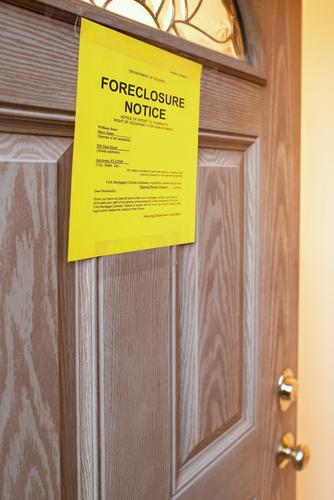Eviction Notices
 What to Know about Eviction Notices
What to Know about Eviction Notices
Regardless of how unruly a tenant may be or how much rent a tenant may owe, a landlord cannot use any self-help methods or do it yourself processes to evict a tenant. This includes turning off water or electricity or changing the locks. Doing any of these may cause a landlord to be liable for any damages. Furthermore certain states enforce penalties such as damages that are equivalent to a couple of months rent.
A landlord must follow the local and state laws of evicting a tenant and must follow these rules strictly. This process if very quick and efficient in comparison to other legal actions, but that is only if everything is done correctly. This process uses the legal power of an eviction notice in order to end tenancy.
The first step a landlord must do to start an eviction is by ending the tenancy. This process is done by serving an eviction notice. There are many different types of eviction notices that a landlord can use.
Eviction Notice for Nonpayment of Rent
• Used when a tenant does not pay rent when it is due.
• The landlord can give a notice that states the rent is due and give 3-5 days to the tenant to pay the rent and any associated late fees listed in the rental agreement.
• If the tenant cannot do this, he or she can be forced to move out.
• If the tenant does pay the complete amount in the time given, the landlord cannot serve an eviction notice.
Eviction Notice for Fixing a Violation
• Some states allow a landlord to give a tenant notice to correct a violation of the rental agreement, such as getting rid of a pet that is not allowed by the lease, or removing a junk car from the front yard.
• This notice hast to state the time given the tenant has to fix the error.
• If the tenant fixes the violation in the given time, the landlord cannot serve an eviction notice.
Eviction Notice for Unconditional notice
• Some states allow a landlord to give a notice to a tenant to move without being able to correct an error if the tenant has somehow violated the rental agreement in a serious manner.
• This can be by multiple late rent payments, drug use or growth, or causing significant damages to the property.
• The time given to the tenant to move is dependent on state law.
• If the tenant has in fact done whatever the landlord claims, the tenant must move else he or she will be evicted.
30-day or 60-day Eviction Notices
• Most states allow a landlord to serve a notice to a tenant without giving a reason.
• Under state law, the time allowed for this eviction notice is typically 30 or 60 days, but can be between 20 to 90 days. These periods can differ if the tenant is a senior citizen, disabled, long-time resident, receiving federal housing assistance, or if the eviction is for a condo conversion.
• A landlord can only give this eviction notice after a lease period is over.
• Theses notices cannot be given for illegal reasons like tenant retaliation or discrimination.
• This notice can also be forbidden in property with rent stabilization or rent control laws.
• Often, cities or states require landlords to also pay for the relocation expenses depending on the situation, such as to disabled or senior citizen tenants or for property that are getting converted into condos.
Related Topics
- Morrill Land Grant Act
- Oregon Tenant Rights
- Understanding a Lien on Property
- Hawaii Tenant Rights
- Oregon Landlord Tenant Law
- The Legal Aspects of Real Estate Finance
- Missouri Tenant Rights
- Maryland Tenant Rights
- Puerto Rico Landlord Tenant Law
- Quit Claim Deeds in Wisconsin